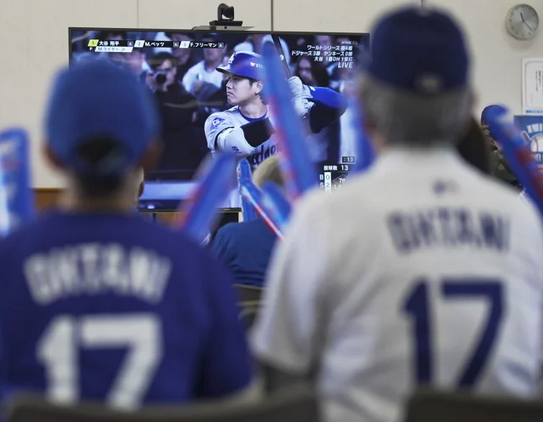Shohei Ohtani Slams Policy Banning Traders from Watching World Series Due To…

As the World Series captivates baseball fans across the globe, one group in Japan is notably absent from the viewing party: traders. Due to a strict workplace policy, financial traders in Japan are reportedly banned from watching the World Series during work hours. Shohei Ohtani, a global superstar and one of Japan’s most beloved athletes, didn’t hold back in expressing his frustration over this policy, calling it a disservice to the fans who have cheered him on from the very beginning.
In the fast-paced world of finance, traders face high expectations to stay focused and minimize distractions. This year, however, a policy has surfaced in some Japanese firms banning traders from watching the World Series at work. Executives cite productivity and market stability as their reasons, claiming that even small disruptions during trading hours can impact market activity. But for many, this seems more like a missed opportunity for companies to honor a cultural moment, especially given the rarity of Japanese players like Ohtani reaching such heights in Major League Baseball.
Known not only for his athletic skill but also for his genuine connection with fans, Ohtani didn’t hesitate to voice his disappointment over the ban. Ohtani shared on social media that he’s saddened Japanese fans are restricted from sharing in the experience and feels for the fans who have supported him loyally. He hinted that moments like these transcend borders, serving as a reminder of the cultural and emotional value sports carry worldwide. His passionate response has resonated with fans, further amplifying the debate over whether the policy needs revisiting.
Baseball holds a special place in Japan, and Ohtani’s journey from the Hokkaido Nippon-Ham Fighters to MLB stardom has only intensified that connection. His success has inspired millions, and Japanese fans follow his MLB achievements as if he’s still playing for their home teams. With nearly 12% of Japan tuning in for major games, this policy feels out of step with the national enthusiasm for baseball, especially during the World Series, where many hope to see Ohtani make history.
Ohtani’s vocal reaction has not only highlighted the restrictive policy but has sparked a debate over the balance between work and cultural experiences. Some companies might see Ohtani’s stance as a push to adopt more flexible policies during major sporting events, allowing workers to engage in moments that bring collective pride and joy. Fans are hopeful that with Ohtani’s influence, these restrictions might ease, or at the very least, open the door to conversations on workplace policies.
In true Ohtani fashion, the superstar’s outcry is more than just about watching a game—it’s about the shared moments that unite fans, even from halfway around the world. His statement reflects the enduring importance of cultural touchpoints in an increasingly globalized world, where sports can bridge distances and unite people. Japanese fans are watching closely, hopeful that one day they can celebrate these monumental moments without restriction.
